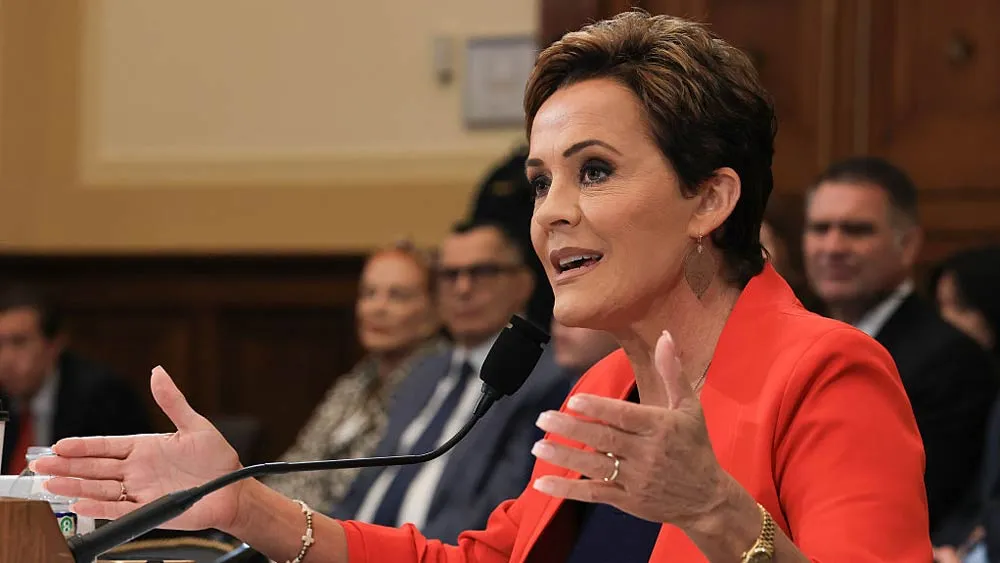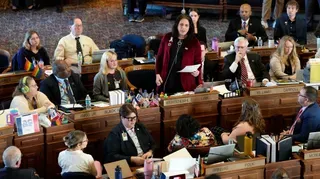July 13, 2013
Aids Conference Under Fire
Kilian Melloy READ TIME: 3 MIN.
Hundreds of organizations and countries are calling on the International AIDS Conference to provide more coverage of populations that are at risk for HIV.
According to a report by seven different organizations, only 17 percent of the abstracts presented by the conference focused on men who have sex with men, transgender people, people who inject drugs, and sex workers. Transgender people had less than 1 percent of abstracts dedicated.
The conference was hosted in Washington, D.C. in July 2012.
"I don't want to say it's surprising because the history of the global AIDS response is kind of characterized by not paying enough attention to the groups that are at highest risk because of political difficulties and because of stigma because of discrimination," said Jack Beck, senior communications associate at the Global Forum on MSM & HIV. "So it's unfortunately not surprising but we hope that this report can be a tool that we can use to advocate for a more appropriate response in the future."
Beck said that for years, many advocates have felt that there wasn't enough coverage of these four populations, but it wasn't until the 2010 conference that they decided to research the topics and abstracts.
The report was a group effort by the Global Forum on MSM & HIV (MSMGF), Global Action for Trans* Equality, the Center of Excellence for Transgender Health, the Harm Reduction Coalition, the International Network of People Who Use Drugs, Different Avenues, and the Global Network of Sex Work Projects.
The groups also found it disturbing that 40 percent of the information these groups focused on were individual risk factors, as opposed to interventions and solutions.
Every two years, the MSMGF does a global men's health survey of thousands of men to learn more about access to basic services, treatment, discrimination, and violence. In the last survey, only 35 percent of the more than 6,000 surveyed had easy access to condoms.
"These are really basic problems that we think people should be addressing in conjunction with discussing things like combination prevention," Beck said.
Before the conference, MSMGF conducted a survey of 300 advocates and service providers to men who have sex with men, asking what are the top three issues for the population. The results were prevention, stigma and discrimination, and law and criminalization. At the conference, it was only covered 1.6 percent, 0.5 percent, and 0.3 percent, respectively.
Other issues of concern were covered in the report, and the writers also included five recommendations as the conference gears up for its next meeting in Melbourne, Australia in 2014. More than 200 organizations from 73 different countries have endorsed the report.
In response to the report released in June, the International AIDS Conference issued a statement about two weeks later, saying that abstracts only account for half of the conference. Also, the conference stated that only 28 percent of participants thought topics could be "better covered" in Melbourne.
"It is important to acknowledge first and foremost that 100% of sessions at AIDS 2012 focused on HIV and AIDS. It is, no doubt, difficult to find exclusivity within the conference programme, as sessions are purposely built to address a variety of topics, populations and cross cutting themes," the response stated.
In regard to the number of abstracts covering men who have sex with men, transgender people, people who inject drugs, and sex workers, "if all oral abstract sessions which address these key populations are taken into account, then the numbers increase considerably with 24% for MSM, 8% for transgender people, 15% for PWID and 16% for sex workers."
The conference response also noted that not all abstracts proposed for the conference can be covered. However, in a study produced by MSMGF, three HIV experts - including one who served on the International AIDS Conference panel previously - looked over the abstracts submitted and found that in their opinion, dozens of abstracts shouldn't have been rejected. A rebuttal to the response was given to the conference.
However, there is hope, as the International AIDS Conference members invited the groups to collaborate on future conferences. Beck pointed out that their report does not discredit the conference and its merits, but is simply constructive criticism to enhance it.
"We were really happy that they read the report and they are starting to explore different ways they can take action to make sure the conference content addresses to the populations appropriately," Beck said. "We want [the coverage of topics] to be congruent with what the community says it needs, and right now it's just not."
Kilian Melloy serves as EDGE Media Network's Associate Arts Editor and Staff Contributor. His professional memberships include the National Lesbian & Gay Journalists Association, the Boston Online Film Critics Association, The Gay and Lesbian Entertainment Critics Association, and the Boston Theater Critics Association's Elliot Norton Awards Committee.




